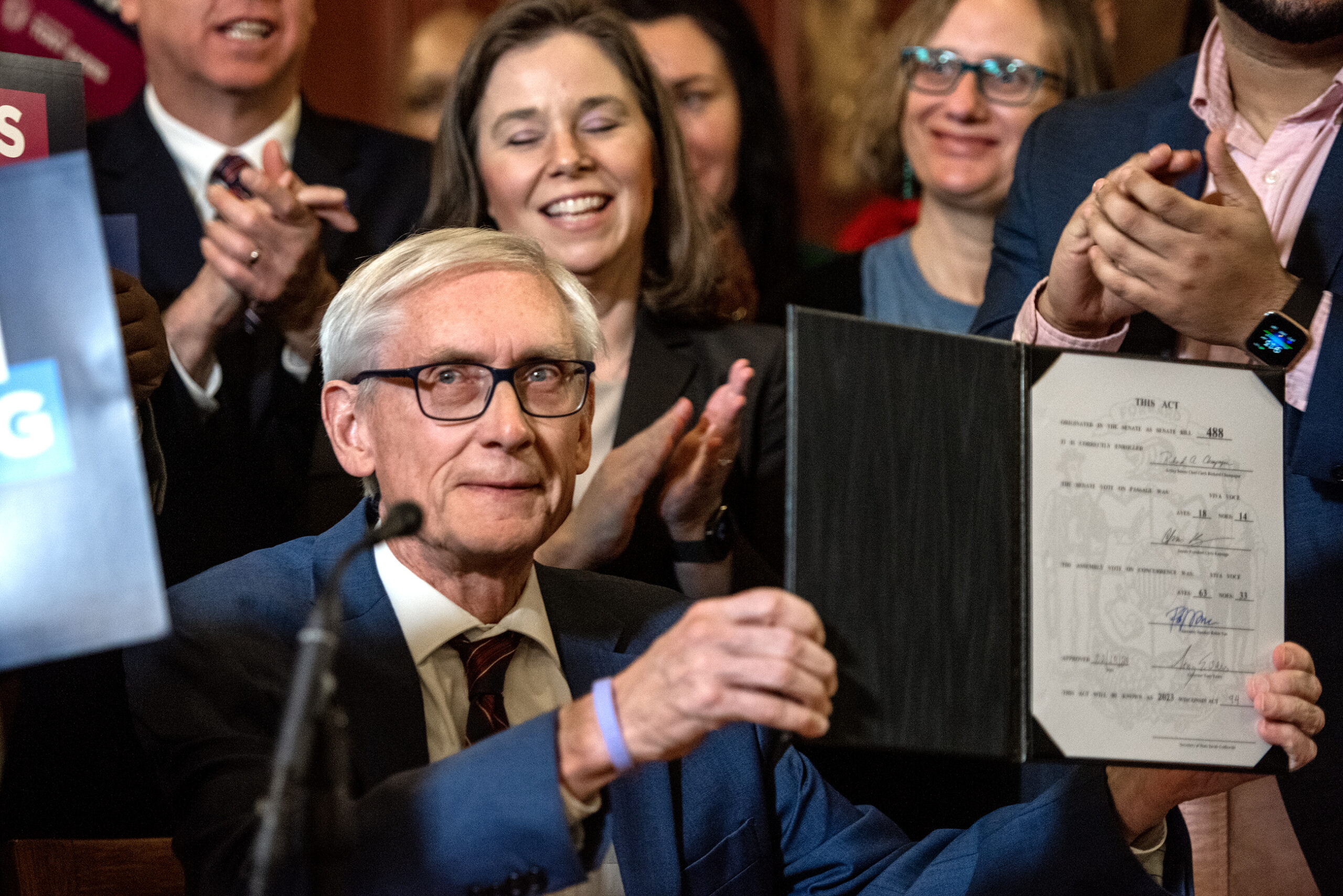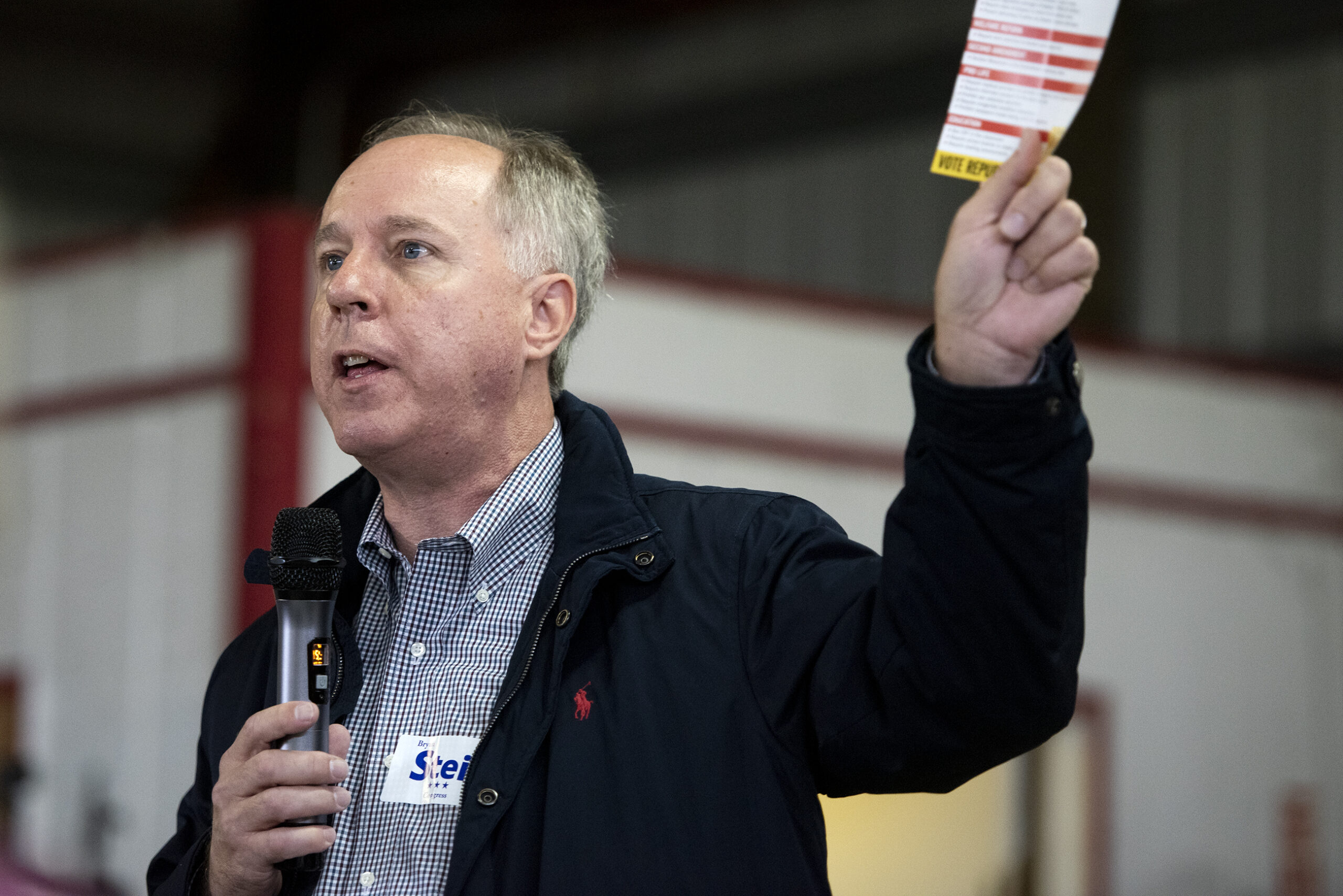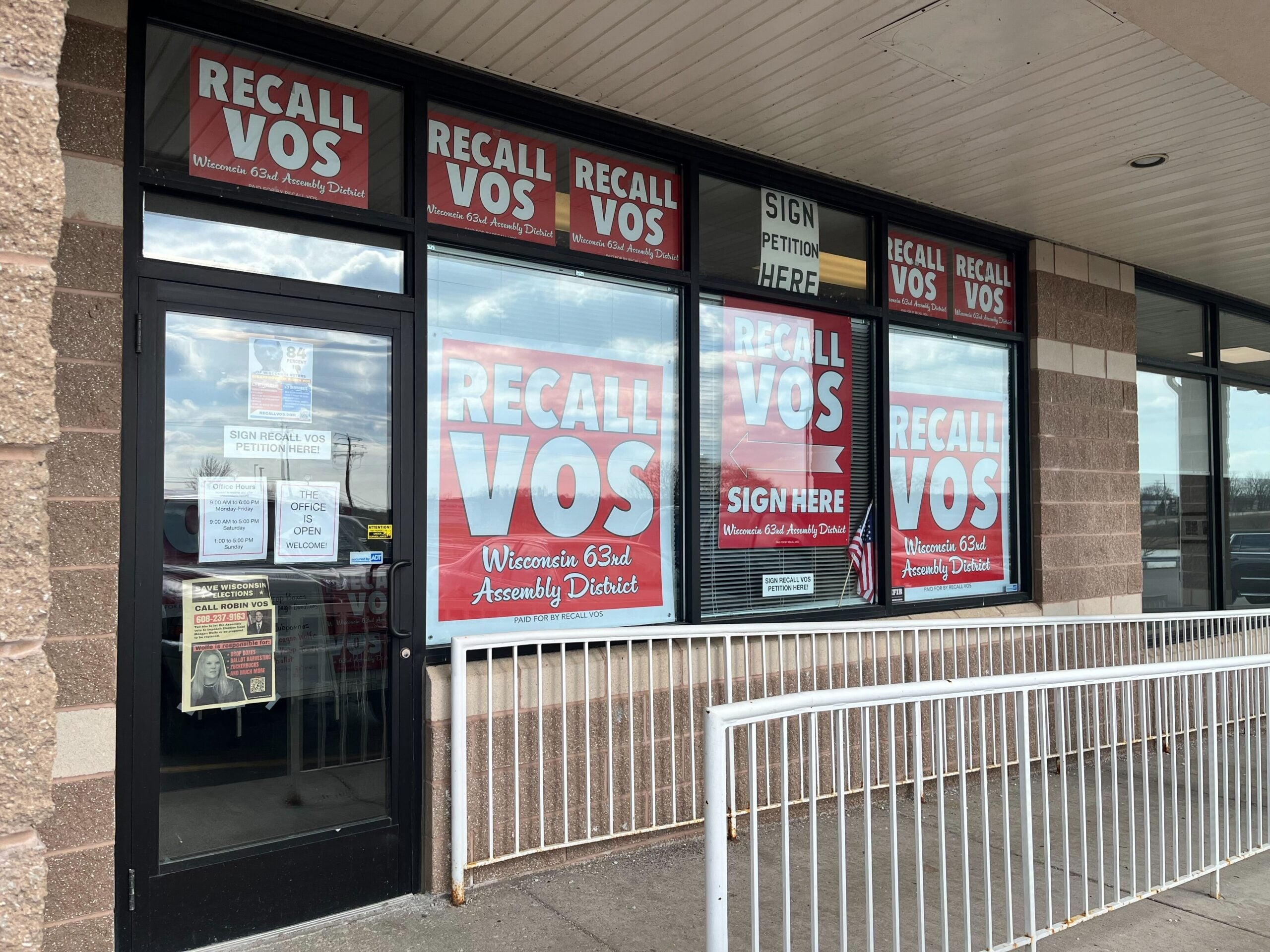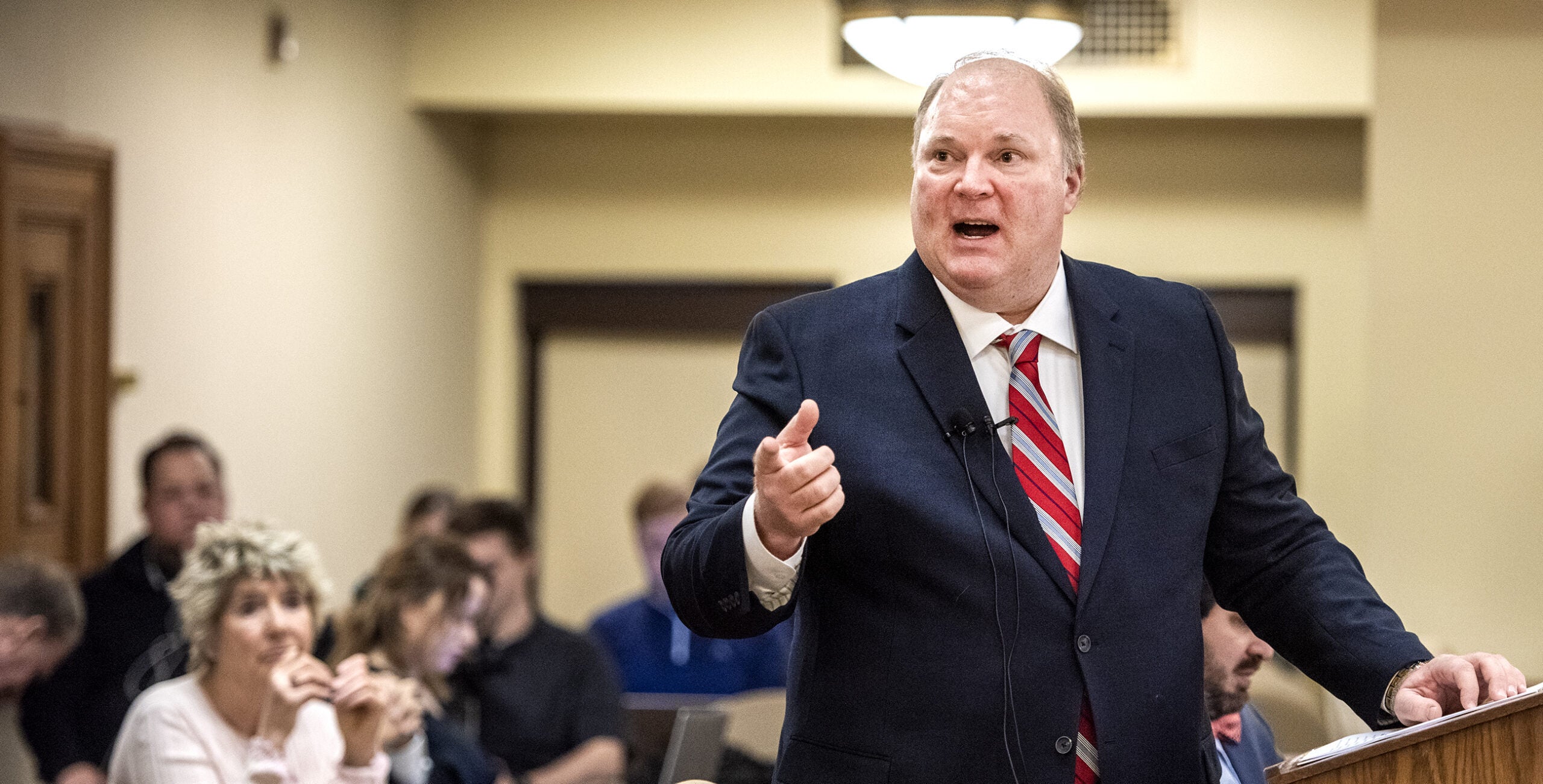Conservative activists trying to recall Republican Assembly Speaker Robin Vos have filed a lawsuit aimed at buying more time to respond to claims that they have fallen short of petition signature requirements.
Vos, R-Rochester, has filed a challenge to the petitions, saying recall organizers have not collected the required number of signatures and that many of those collected are invalid.
Organizers want the deadline for their response to be extended until after the Wisconsin Supreme Court decides which voting maps apply to potential recall and special elections.
News with a little more humanity
WPR’s “Wisconsin Today” newsletter keeps you connected to the state you love without feeling overwhelmed. No paywall. No agenda. No corporate filter.
An attorney representing the Recall Vos organizers filed a petition in Dane County Circuit Court on Monday asking for an “extension of time” to rebut Vos’ challenge.
The Recall Vos campaign had until Monday at 5 p.m. to file their response with the Wisconsin Elections Commission. The petition, filed by attorney Kevin Scott, is asking Dane County Circuit Court Judge Rhonda Lanford to extend that deadline until five days after the Wisconsin Supreme Court clarifies which legislative maps should be in effect for the potential recall.
When the Supreme Court’s liberal majority declared Republican-drawn maps unconstitutional in December, it blocked the elections commission from using them in any future elections. In February, the GOP-controlled state Legislature passed maps drawn by Democratic Gov. Tony Evers, who signed them into law days later.
But there was — and still is — a catch. The bill creating the new maps specifies they won’t go into effect until the November general election.
Attorney Bryna Godar of the University of Wisconsin Law School’s State Democracy Research Initiative said that, in effect, “we kind of don’t have maps right now” that can be used by the elections commission.
Vos’ attorneys claim that all means the recall effort against him “must be rejected” because recall organizers circulated recall papers listing the 63rd Assembly District he was elected to in 2022.
Vos’ challenge also cites a 1982 opinion from former Wisconsin Attorney General Bronson La Follette, who was asked to weigh in on which districts should apply after a federal appeals court drew new legislative maps following a court challenge at that time.
“In my opinion, neither recall elections nor elections to fill a vacancy can be based on an apportionment plan, which has been found unconstitutional,” La Follet said.
While attorney general opinions can carry persuasive weight with courts, Godar said they don’t outweigh any order from the state’s high court. Also, she said, the 1982 opinion is specific to a situation where lawmakers were asking about a court-ordered map.
“We’re in a slightly different situation here, where the Legislature and governor passed maps that will go into effect for offices elected at the general election,” Godar said.

Do recalls have enough signatures regardless of which maps are used?
While those legal questions remain unanswered, an initial review by Wisconsin Elections Commission attorneys indicate the Recall Vos organizers fell short of gathering the needed 6,850 valid signatures to remove the powerful Republican from office.
A memo from the agency determined 5,905 signatures came from people living within Vos’ 63rd Assembly District. The WEC review found about 3,300 signatures came from people within the boundaries of the district that will be affected under the new maps.

Supreme Court could soon settle the maps question
In a search for clarity, the WEC filed a motion with the Supreme Court March 15 asking which maps it should use “for any recall or special election” that must happen before November. The court’s liberal majority called for legal briefs on the question from parties to the ongoing redistricting lawsuit.
A brief filed by the GOP-controlled Legislature and Republican state senators urged the court to close the redistricting once and for all, stating the elections commission has the authority to decide which maps to use for recall and special elections.
Briefs filed by Democrats who initiated the redistricting lawsuit, Democratic state senators and Gov. Evers urged the court to decide which maps to use.
Godar said the Wisconsin Elections Commission could pick which maps apply, but that could be met with yet another lawsuit.
“I think there is good reason for the (Wisconsin Supreme) court to just provide clarity on this issue,” Godar said.
Wisconsin Public Radio, © Copyright 2025, Board of Regents of the University of Wisconsin System and Wisconsin Educational Communications Board.





